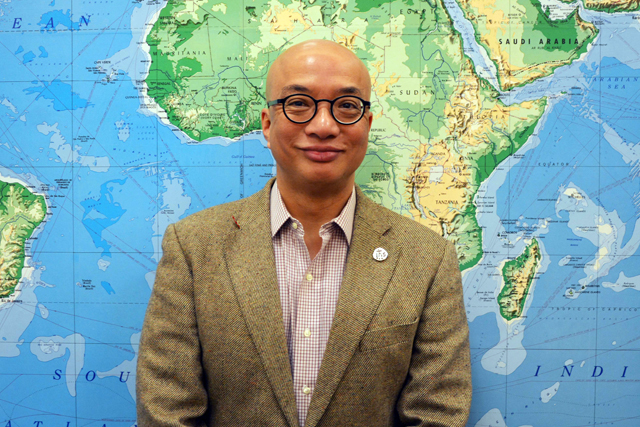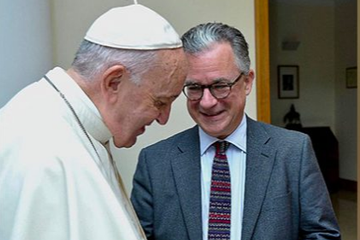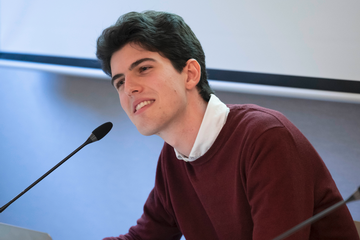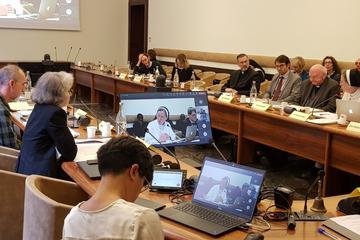
By Elena Dini
ROME — On Oct. 18, The Lay Centre will host the international director for communications and advocacy of the Jesuit Refugee Service, Father Aloysious Mowe, SJ, about the challenging question, “Who is my neighbour?”
Father Mowe’s presentation is the second in this year’s VPI series at The Lay Centre. Father Mowe entered the Society of Jesus in 1983; he was ordained a priest in 1996. His academic background is in Middle Eastern and Islamic studies. He started collaborating with JRS as a first-year Jesuit novice in Malaysia, eventually becoming country director of JRS Australia, a position he held until March 2017, when he moved to Rome to work at the JRS headquarters.
The Lay Centre asked him a few questions ahead of his presentation.
Father Mowe, could you tell us about your own work at Jesuit Refugee Service?
The Jesuit Refugee Service is present in 53 countries around the world and most country offices have their independent website or social media. Like any organization active in humanitarian efforts, we work on fundraising — that means not only financial support but also getting people’s support and engagement for refugees — advocacy and communications, by putting out stories of refugees to a larger audience.
We believe that people looking for safety should be the centre of the story. Otherwise, we end up thinking about refugees only in terms of numbers. A few years ago, a picture became viral of a young Syrian boy, whose body was found on the beach, with a red shirt and blue shorts. One of the reasons that image created such an impact was that we can all find connections to children. And that child had a name, a history, and we could see his picture; he was not a stranger or another anonymous refugee.
From here in Rome, we provide technical support and offer training and advice to our local offices. We also try to identify the situations that need more support at an international level and we work in close connection with the Holy See. We all know that for Pope Francis the issue of migrants and refugees is at the very centre of his ministry.
In today’s world, the question, “Who is my neighbour?” is a really timely one. What are the biggest challenges you face in your work?
I would say, using Pope Francis’ expression, the biggest challenge is the “globalization of indifference.” The thought behind it is that if I live in Italy or in the United States, a person in danger in Afghanistan or in Iraq is none of my business and somebody else needs to take care of that situation. My priority is to look after my needs, the needs of the people immediately around me and in my country.
However, Catholic Social Teaching tells us that we are all interconnected and responsible for all other persons in this world. Indifference and lack of a global vision are huge challenges for us as Church. We call the Church “catholic” because it is universal and we have the duty, therefore, to try to make that real.
Instead of globalizing indifference, we should globalize solidarity and our challenge is to get this message out. In our way of consuming news and information, we are unfortunately losing the ability to go in-depth in a story. Everything becomes banal and light, but human tragedies and the need for us to be generous and express solidarity are not light things; they require depth.
What is the main message people should hear in our society about "neighbourliness"?
I suppose that what I want people to think about is who are the people in today’s world who are actually strangers to us, who are really “the other”? In Europe now, the language is: “the other” is Muslim, “the other” is Islam. We hear in some countries, “The identity of Europe is Christian.” Therefore, by definition “the other” is the non-Christian. Is that true? Or is the person most regarded as “the other” a call for us to do something, so that “the other” becomes a neighbour?
In the Gospel, the person who is the neighbour is the person the Jewish man fears, the Samaritan. Jesus is saying to us that the person who is religiously most different from us could be the one who is the closest to God because that is the person who provides the model of being a neighbour.
You can register for the event here.


